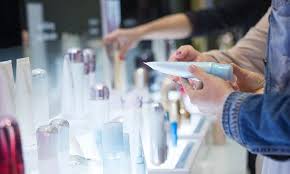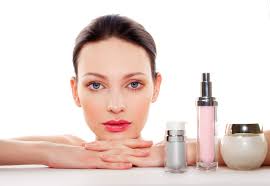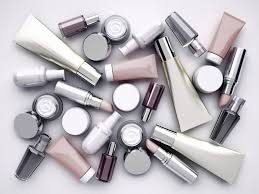
Why you want to stay away from this nasty ingredient!
Here are some reasons you may wish to eliminate silicones from your skin care routine and see an improved complexion. Dimethicone being the most common silicone used.
Like plastic wrap, silicones form a barrier on your skin, trapping debris in your pores, like oils, impurities, dirt, sweat, bacteria, dead skin cells to name a few.
You’ll be happy to know that our preferred skin care product, dermaviduals, contains zero silicones.
Get your skincare products out and check the label.
Silicones Deliver Nothing Beneficial to Your Skin
When you use skincare products heavy in silicones, you’re not actually hydrating or nourishing your skin, no matter what the label may claim—it’s simply a short-term smoothing.
As beauty consumers, we deserve higher-quality ingredients that support skin health.
Reasons to Avoid Silicones:
- You run the risk of creating larger pores.
- Make your skin dehydrated and dull. Your skin becomes less able to shed dead layers and hydrate itself.
- Blocks other ingredients from absorbing. If you are layering products, silicones can prevent them from doing their jobs properly. Perhaps impeding the absorption of beneficial ingredients in the same product.
- Difficult to remove. Dimethicone is extremely heavy and leaves a coating on the skin unless it is carefully removed. Do you find your Cleanser doesn’t remove your makeup or clean your face as it should?
- Can cause acne and congestion. Prolonged exposure to oil, dead skin and bacteria underneath the semi-occlusive seal of silicones can lead to increased breakouts. If you are acne-prone, I would say that silicones are the most important ingredient to avoid. Silicones can also be a culprit in under-the-skin clogs (a.k.a. congestion), even if you don’t develop full-blown acne.
- Interferes with cell renewal. Our skin renews itself every 28 days, whereby old cells are sloughed off and new cells make their way up to the surface. Silicones inhibit this process by slowing down the production of new cells and keeping dead cells stuck longer. Impaired cell renewal could decelerate the improvement of conditions such as pigmentation, redness, fine lines and scarring!

Why Beauty Companies Use Silicones:
- It may hold in moisture
- Silicones give a silky, spreadable, luxurious texture, making you think the product is ‘working’.
- Gives a slip action to a product
- Gives your skin a matte finish
- Rather than using raw materials that have a shorter shelf life and cost more, cheaper, man-made plastics as fillers are used by beauty companies on all price levels.
- Water resistant claims of 48hour hydration are reached by hydrophobic silicones that form a seal over the skin.
- It is great for lice as it kills the eggs before they hatch.

How to Spot Silicones in Beauty Products:
The vast majority of foundations on the market are high in silicone.
The easiest way to identify silicones on product labels is to look for words that end in one of these:
Cones: For example, amodimethicone, cyclomethicone, dimethicone, methicone, trimethicone, trimethylsilylamodimethicone.
Conols: For example, dimethiconol.
Silanes: For example, bis-PEG-18 methyl ether dimethyl silane, triethoxycaprylylsilane, triethoxycaprylylsilane crosspolymer.
Siloxanes: For example, cyclopentasiloxane, polydimethylsiloxane, siloxane.
There is an increasing trend toward using silicone “substitutes”—alternative film-forming ingredients that you might not immediately recognize. (This is what I mean about all the different identities these things go under!)
So you may wish to look for these names as well:
- Acrylamides
- Acrylates
- Carbomers
- Copolymers
- Methacrylates
- Polymers (most commonly polybutene and polyisobutene)
- Polyvinylpyrrolidone (PVP)
- Hydrogenated polyisobutene, which is a silicone oil.
For truly healthy skin, consider eliminating silicones from your beauty routine.
I hope you’ll agree that your skin is better off without silicones.
Frankly, I find it interesting that so many beauty companies falsely profess to be helping our complexions while cranking out these cheap formulations devoid of natural, nourishing ingredients!
Do I think it’s a problem to use silicone-based cosmetics for special occasions? No. But for a day to day basis, I’d really encourage you to seek out healthier alternatives, especially with your moisturizers and foundations.

One thought on “Does your skin care have silicones?”
Thank you. Very helpful info!